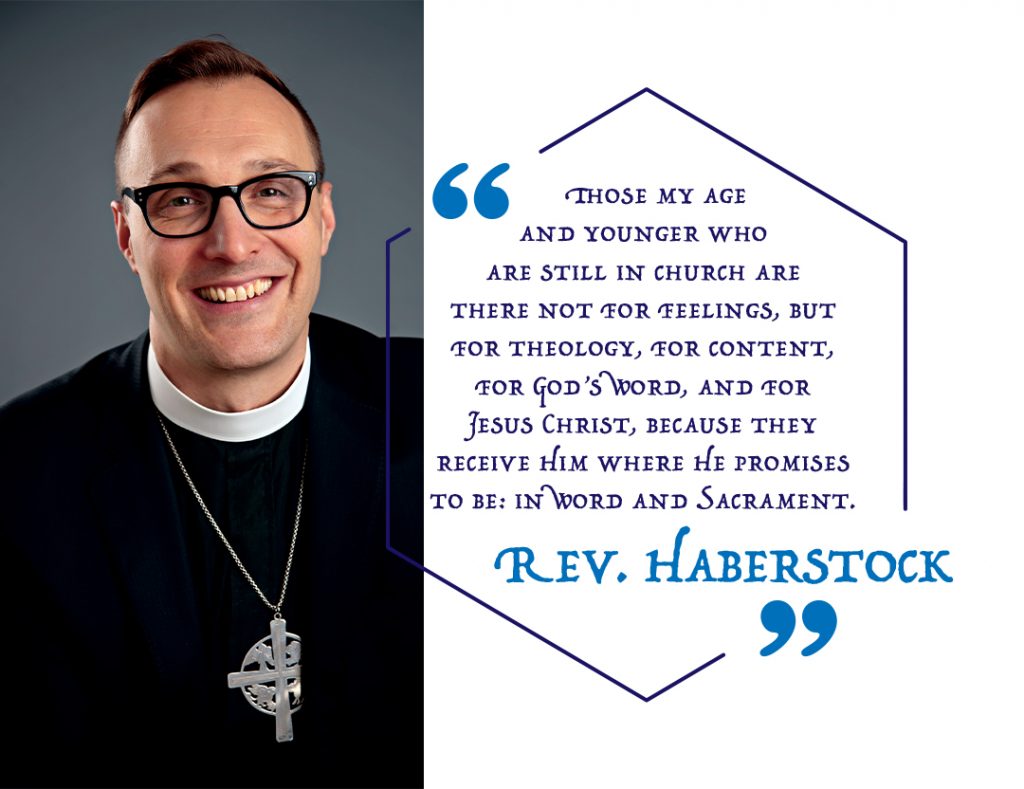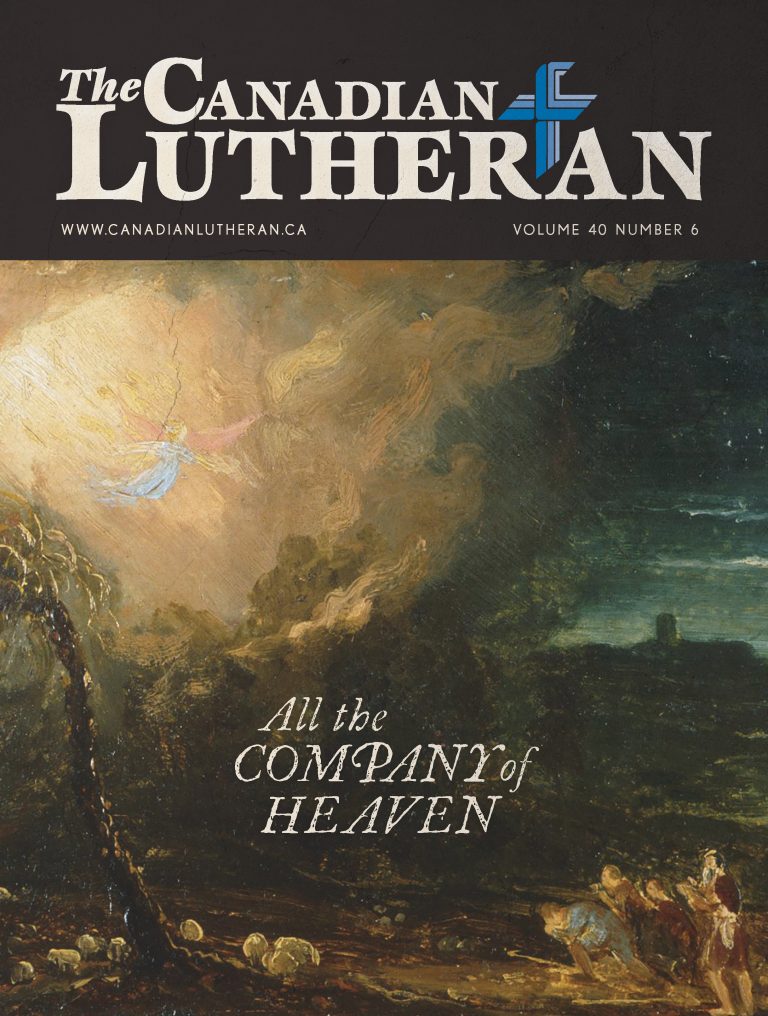The Times In Which We Live

by David Haberstock
It was once said that the men of Issachar “had understanding of the times, to know what Israel ought to do” (1 Chronicles 12:32). What ought we to do in our times? That’s the big question, isn’t it? But in order to answer it, you have to understand the times.
Gone are the “Happy Days,” the days of the Baby Boom, with churches being built at the same rate as the suburbs. It is increasingly rare in wider Canadian society to see large families, couples marrying young, waiting for marriage to have kids, or even marrying at all. Even if these families were to end up in church, these trends mean that it would take more than twice as many families to fill our pews than in the days of “Leave It to Beaver.” We still expect our churches to be just as full as they were in the past. But we need to adjust our expectations to the times we live in, giving thanks for the faithful believers who come, rather than despairing at the empty pews around us.
But we need to adjust our expectations to the times we live in, giving thanks for the faithful believers who come, rather than despairing at the empty pews around us.
The Evangelical Fellowship of Canada recently published an article called “Not Christian Anymore.” This reports on their recent survey, which concludes that “half of Canadians are either agnostic, atheist, or unreligious. And only a tenth attend religious services weekly.” They also note that, in all age groups, attendance is down significantly. These are the times in which we live. This is good to know, for you cannot know what to do if you do not understand the times.
St. Paul wrote, “Preach the word; be ready in season and out of season” (2 Timothy 4:2). Did you catch that? We must always preach the Word, and always be ready to preach, yet there may be “out of season” times when nothing grows. You and I are not in control of what “season” we are in. We can only scatter the seed (Luke 8:11). That is why we must always preach the Word, because it will not return to the Lord without accomplishing what He desires (Isaiah 55:11). However, sometimes the Lord grants us understanding so that we might know what to do and what to expect.
I suggest that our present moment may be an “out of season” time. We must still preach the Word. We must be ready, for the times may change in the twinkling of an eye, and the Gospel is the only power of God unto salvation (Romans 1:16). God has ordained that faith comes by hearing, hearing the Word of God (Romans 10:17), specifically, the Word about Christ. But this moment may not be when the seeds of the Word sprout.
I suggest that our present moment may be an “out of season” time. We must still preach the Word. We must be ready, for the times may change in the twinkling of an eye, and the Gospel is the only power of God unto salvation (Romans 1:16). God has ordained that faith comes by hearing, hearing the Word of God (Romans 10:17), specifically, the Word about Christ. But this moment may not be when the seeds of the Word sprout.
In many cases we are longing for the “good old days,” when churches were full, rather than honestly grappling with the reasons they are not presently (e.g., increased secularism, the sexual revolution, low birth rates, excess of stuff, etc.). In Matthew 6:23, Jesus tells us that what we look at and focus on gives light to our whole being. If we focus on the wrong thing, our whole life is filled with darkness and confusion. This causes anxiety.
The Holy Spirit fixes the eyes of your faith on Christ Jesus by preaching. This “light” to your eyes fills your life with joy and peace. When your congregation focuses on the worries of tomorrow instead of seeking the Lord and His righteousness (Matthew 6:33-34)—given to you in His Absolution and His Sacraments—how dark is our life together? But when we seek and desire His righteousness, in Word and Sacrament, that light enlightens our whole body. For His Word is the lamp to our feet and the light to our path (Psalm 119:105), which fills us with comfort and peace.
This does not mean that the current trends are not a challenge, but it does change our perspective and our response. Focusing on empty pews increases our anxiety and causes us to lash out at each other (and our pastors!). Focusing on how the Holy Spirit, despite heavy pressure on us to fall away, still calls, gathers, and enlightens the saints who are there with His gifts increases our joy.
In short, we need to be bold. Proclaim the truth. Be Lutheran. Teach the faith. Those my age and younger who are still in church are there not for feelings, but for theology, for content, for God’s Word, and for Jesus Christ, because they receive Him where He promises to be: in Word and Sacrament. So know the times and preach the Word.
What can we do about the fact that family sizes are smaller, and Sunday School and confirmation classes are smaller? Nothing, unless you are able to have more kids (and if so, do!). What can we do about increasing secularism that robs people of their faith? We must encourage our young families and support them as they raise and catechize their children, stressing the importance of regular church attendance and the faithfulness of parents in passing on the faith.
In short, we need to be bold. Proclaim the truth. Be Lutheran. Teach the faith. Those my age and younger who are still in church are there not for feelings, but for theology, for content, for God’s Word, and for Jesus Christ, because they receive Him where He promises to be: in Word and Sacrament. So know the times and preach the Word.
———————
Rev. David Haberstock is Regional Pastor for Lutheran Church–Canada’s Central Region.



